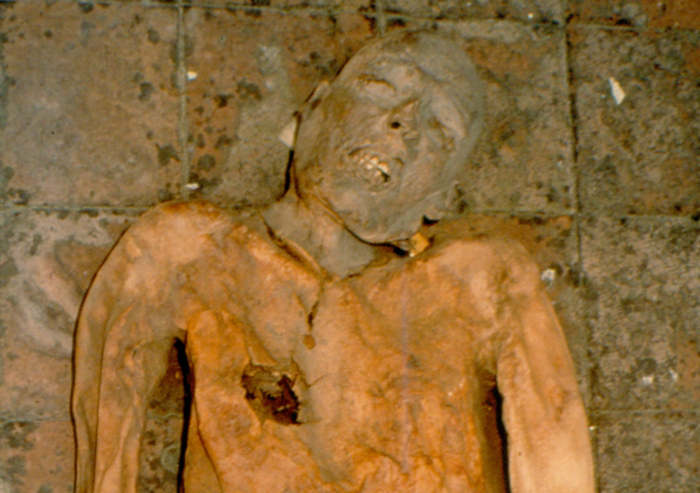After almost five centuries, a bacterial infection caused by Escherichia coli was diagnosed in the mummy of an Italian nobleman: it was Giovanni d'Avalos, who died in 1586 at the age of 48 and whose remains were recovered in 1983 from the Basilica of San Domenico Maggiore in Naples.
The researchers, led by the Canadian University McMaster and with the fundamental Italian contribution of the University of Pisa and Catania, extracted a gallstone from the mummified body of the noble, managing to identify the ancient DNA of the bacterium that infected him at the time of death.
The study, published in the journal Communications Biology, will help understand how Escherichia coli has evolved and adapted over time and how harmful it can be to humans.
"This is a result of great importance, the result of a collaboration between Italy and Canada that has already started several years ago", says to ANSA Gino Fornaciari, one of the authors of the study, professor at the University of Pisa, one of the founders of modern paleopathology and internationally known for the studies conducted on the mummies and on the bodies of many historical figures.
“This is the first time that this bacterium has been identified and sequenced in such ancient material.
I am very happy to have participated in this work - adds Fornaciari - that without the contribution of the University of Pisa, which has preserved and studied the remains of the approximately 30 mummies found in Naples, it would have been impossible ".
Modern Escherichia coli is commonly found in the intestines of healthy people and animals and is therefore defined as a commensal bacterium, that is, a bacterium that normally resides in the body and is usually harmless, but can trigger infections in case of stress or illness.
The researchers, led by George Long, examined the remains of Giovanni d'Avalos, who suffered from chronic inflammation of the gallbladder due to gallstones.
Once the samples were collected, the study authors had to meticulously isolate the fragments of the target bacterium, which had been severely degraded due to environmental contamination, and then used the recovered material to reconstruct the DNA.
The comparison with that of the modern bacterium revealed that the ancient strain, ancestor of the current ones as explained by Professor Fornaciari, lacked the key genes that would have allowed it to infect cells and cause disease.
This suggests that the infection was probably of an opportunistic type (it therefore only developed following the decline in immune defenses) and had no symptoms.
"It is unlikely that the infection was the cause of death, which remains unknown," comments the Italian researcher.
“However, it is thought that he had health problems, above all because starting from 1574 he stopped participating in tournaments and jousting, as a knight.
In any case he - he continues - he certainly led a very intense life: he was Count of Montescaglioso and Pomarico,
and captain of the Spanish troops for King Charles V and Philip II.
His tomb was relatively intact, even if some objects had been stolen: for example, the thieves had managed to take the ring from him, among other things by breaking his finger ".






/cloudfront-eu-central-1.images.arcpublishing.com/prisa/2P2FATFESJDD5BB6NR7VLSJ7QY.jpg)







